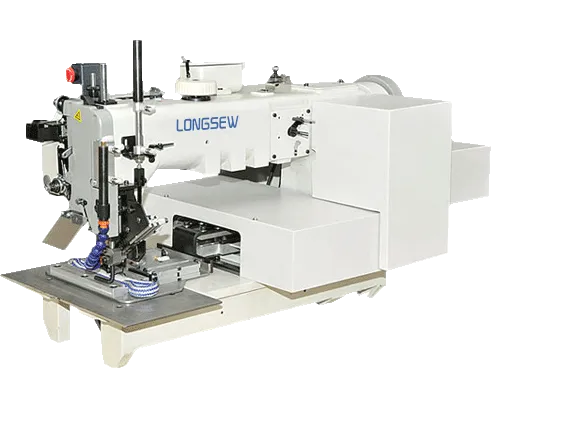Affordable Pricing Options for Double Needle Chain Stitch Sewing Machines
Understanding the Price of Double Needle Chain Stitch Machines
In the world of industrial sewing, the double needle chain stitch machine stands out for its versatility and performance. It is widely used in various sectors, particularly in making garments, bags, and upholstery. As businesses look to enhance their production capabilities, understanding the pricing dynamics of these machines is crucial. This article delves into the factors influencing the price of double needle chain stitch machines, offering insights for potential buyers.
What is a Double Needle Chain Stitch Machine?
A double needle chain stitch machine is a specialized sewing machine that uses two needles to create a chain stitch. This type of stitch is known for its strength and elasticity, making it suitable for stretchable fabrics. The double needle feature allows for the creation of parallel rows of stitching, which not only enhances the aesthetic appeal of garments but also improves durability.
Factors Influencing the Price
1. Brand and Model Like many industrial machines, the brand plays a significant role in determining the price. Well-known brands with a reputation for quality, such as Juki, Brother, or Consew, tend to offer machines at a premium. Additionally, specific models may have unique features or capabilities that can drive the price up.
2. Features and Specifications The complexity of features included in the machine can significantly affect its cost. Machines with advanced technology, such as automatic tension adjustment, programmable sewing patterns, or enhanced speed settings, are generally priced higher. Buyers should consider what features are necessary for their specific production needs.
3. Machine Size and Capacity Larger machines that can handle heavier workloads or larger fabric pieces will often cost more than standard-sized machines. Businesses needing to optimize their production lines may invest in larger models, thereby impacting overall costs.
double needle chain stitch machine price

4. Condition of the Machine New machines typically come with a higher price tag, often ranging from $1,000 to over $5,000 depending on the factors mentioned earlier. However, there is also a market for used machines, which can be significantly cheaper. While purchasing used machines may save money, potential buyers should consider refurbishment costs or any potential repairs needed.
5. Market Demand and Supply The price of double needle chain stitch machines can fluctuate based on market demand and supply. During peak seasons or when new features are introduced into the market, prices may rise. Conversely, during off-peak periods, prices may drop as suppliers seek to clear inventory.
6. Geographical Location Prices can also vary by region. Factors such as import tariffs, local demand, and operating costs can influence the price of industrial sewing machines in different countries. It is essential for buyers to compare prices across suppliers and locations to ensure they are getting the best deal.
Conclusion
Investing in a double needle chain stitch machine can significantly enhance production capabilities for businesses in the textile industry. However, understanding the various factors that contribute to the pricing of these machines is vital in making an informed purchase.
When contemplating the acquisition of a double needle chain stitch machine, businesses should assess their specific sewing needs, evaluate various models and brands, and consider both new and used options. By doing so, they can find a machine that not only fits their budget but also meets their operational requirements.
In summary, while the price of double needle chain stitch machines can vary widely based on numerous factors, careful consideration and research will empower buyers to navigate the market effectively. Whether one opts for a high-end model or a more economical choice, investing in the right machine can lead to improved efficiency and quality in production.
-
Boost Production Efficiency with a Pattern Sewing MachineNewsAug.29,2025
-
Industrial Excellence with the Best Heavy Duty Sewing MachineNewsAug.29,2025
-
Precision and Power with the Best Pattern Sewing MachineNewsAug.29,2025
-
Reliable Bulk Packaging Starts With the Right FIBC Sewing MachineNewsAug.29,2025
-
Advanced Packaging Solutions: Elevate Productivity with Jumbo Bag Sewing Machine and Industrial Stitching EquipmentNewsAug.29,2025
-
High-Performance Solutions for Bulk Packaging: FIBC Sewing Machine and MoreNewsAug.29,2025
-
Maximize Efficiency with an Industrial Cylinder Arm Sewing MachineNewsAug.28,2025


























